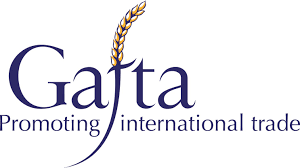Gafta is a multinational organization managing cereal grains’ export and import. This organization also serves as a mediator for international commercial issues. Gafta is made up of almost 1,500 enterprises from 89 different nations. Gafta’s core offering is the creation of template pro forma contracts for the exchange of grains. This article would be helpful if you want to discover how arbitration works and what are the advantages of the agreements mentioned above.
Arbitration
The purpose of arbitration is to have a neutral third party hear all sides of a dispute and then make a binding ruling. It is usually best to find a solution to resolve the disagreement. Gafta arbitration decisions may be made by a single arbitrator or a panel of three.
An arbitrator’s decision is final and binding on all parties to the arbitration. The ruling will be as binding as a contract once they hear facts and testimony from both sides. At some point, the court might rule on whether or not to uphold the award.
Advantages of Using Basic Contracts
Gafta includes many blank contract forms that may be customized for various transportation and commercial operations. The focus is on reaching a consensus on significant issues. Primarily, it’s about the cost, quality, and turnaround time. The specifics may be found in each party’s Gafta agreement. As you might assume, grain trading around the world relies heavily on these standard contracts.
Another benefit is the comparatively short application period of just 12 months. It may be assessed against the end of the delivery period, the date of discharge, or the date on the bill of lading. After one year from the date on which the quality fault was detected, the claim filing deadline will expire. Petitioners may be eligible for a six-year extension under certain conditions.
Gafta contracts are also quite reasonable in price. In general, you can expect to spend about £14,654.75. If you’re not familiar with GAFTA, the sum may seem high. However, keep in mind the significance of the setting. For example, the London Court of International Arbitration has much higher fees.
Conflict Resolution: Common Practices
When putting Gafta into practice, what happens if parties disagree? They might perhaps take it to a specialized arbitration panel. In principle, both parties’ arbitration procedures will follow the same structure.
The usage of Gafta 125 and Gafta 126 is common. Arbitration cannot begin until a claimant has selected an arbitrator and filed a claim. Complaint paperwork may be filed 21 days after the first payment. The secretary keeps records of all correspondence. The arbitrators and the parties do not meet in person.
The panel is considering the Gafta arbitration dispute in particular. The arbitrators here will function as a court of law. They are not representing anybody in a legal capacity. Only qualified legal counsel can evaluate the strength of a case and gather the facts necessary for a favourable ruling. Expert guidance is necessary to develop a defence or prosecution line, avoid risks, and accomplish objectives.
Awards of Arbitration
All decisions must be written down and signed by the sole arbitrator or, in the case of a three-person tribunal, the head. The tribunal will be able to figure out the costs of the reference and anything else related to it, as well as the fees and/or expenses the tribunal had to pay.
At the end of the arbitration, the tribunal will figure out who should pay the costs and give them out. The expenses are set by the Gafta Council and are in effect at the time. Any fee paid by a non-member is his responsibility.
Gafta will get the award from the court. When Gafta gets the signed award, it will let the parties named in the award know that the award is theirs to use if they pay the fees and costs.
Gafta will first ask the claimant to pay any outstanding balance. If Gafta doesn’t get the payment within 21 days of sending the notice, the organization will ask the respondent to take the award. When Gafta gets the fees and/or costs, it will date the award and send it to the parties.
Instructions for Claiming Your Award
Even if a business is successful, it still faces challenges. The judgment must be recognized and enforced by any government or court having jurisdiction over the company. In other words, wherever the debtor’s assets are located is where the enforcement action will take place.
Exactly how does the procedure of enforcement work? The local court must have a copy of the decision and the agreement in the form of a certified copy. In the end, the executor receives the award, and the debtor is obligated to make payment.
Keep in mind that Gafta is not a miracle cure. It is best practice to use certain tried and true procedures to ensure the success of arbitration before committing to it. In half of the cases, buyers may prevent problems altogether by just doing a Google search on the organization.














